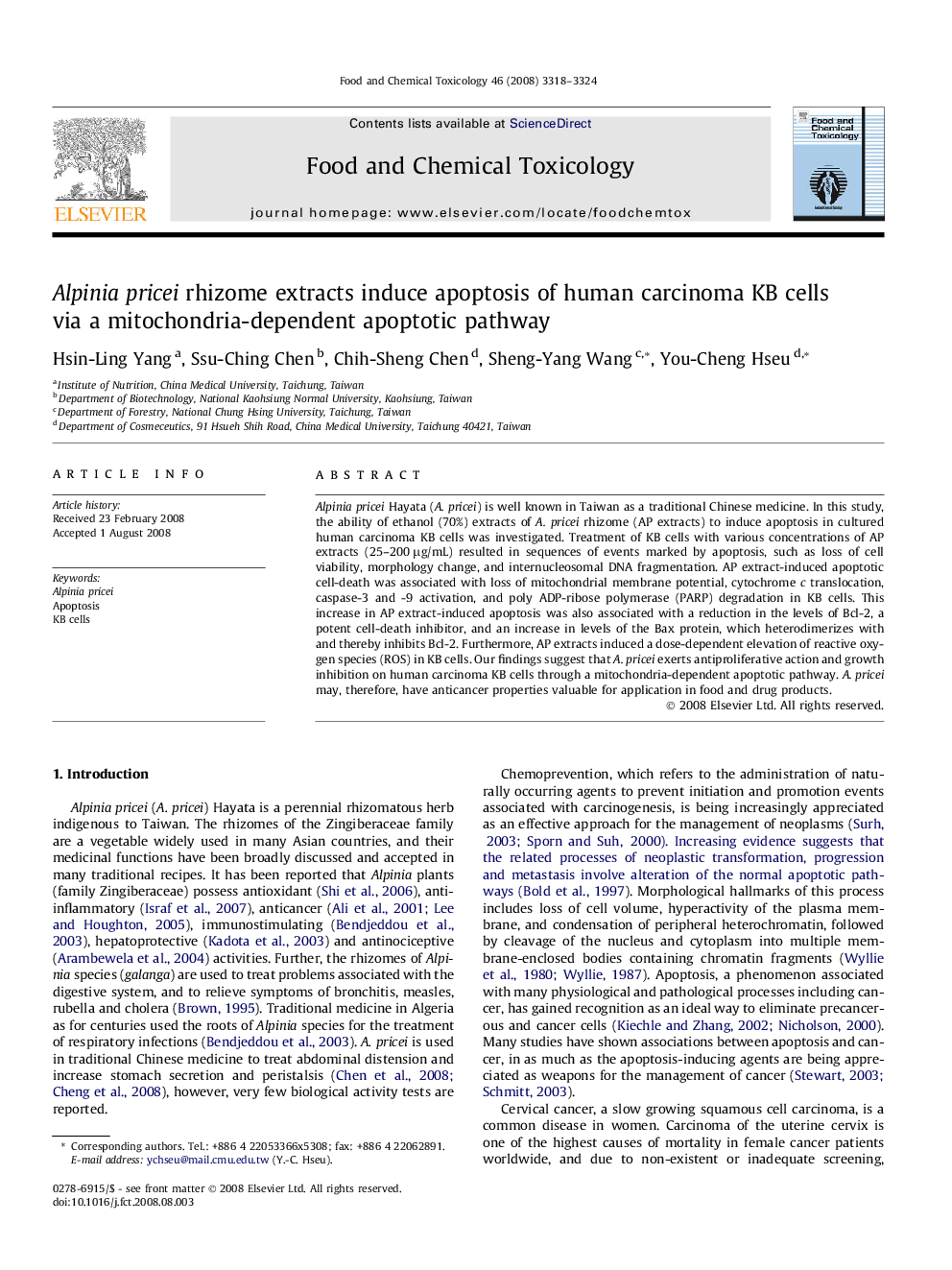| Article ID | Journal | Published Year | Pages | File Type |
|---|---|---|---|---|
| 2587247 | Food and Chemical Toxicology | 2008 | 7 Pages |
Alpinia pricei Hayata (A. pricei) is well known in Taiwan as a traditional Chinese medicine. In this study, the ability of ethanol (70%) extracts of A. pricei rhizome (AP extracts) to induce apoptosis in cultured human carcinoma KB cells was investigated. Treatment of KB cells with various concentrations of AP extracts (25–200 μg/mL) resulted in sequences of events marked by apoptosis, such as loss of cell viability, morphology change, and internucleosomal DNA fragmentation. AP extract-induced apoptotic cell-death was associated with loss of mitochondrial membrane potential, cytochrome c translocation, caspase-3 and -9 activation, and poly ADP-ribose polymerase (PARP) degradation in KB cells. This increase in AP extract-induced apoptosis was also associated with a reduction in the levels of Bcl-2, a potent cell-death inhibitor, and an increase in levels of the Bax protein, which heterodimerizes with and thereby inhibits Bcl-2. Furthermore, AP extracts induced a dose-dependent elevation of reactive oxygen species (ROS) in KB cells. Our findings suggest that A. pricei exerts antiproliferative action and growth inhibition on human carcinoma KB cells through a mitochondria-dependent apoptotic pathway. A. pricei may, therefore, have anticancer properties valuable for application in food and drug products.
